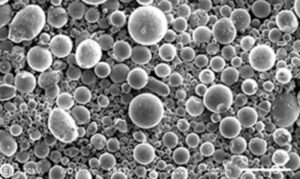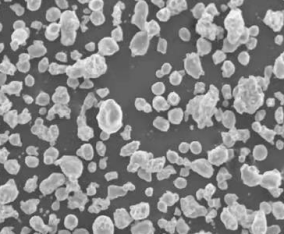액체 금속 분사 (LMJ)은 제조 세계를 혁신하고 있습니다. 들어본 적이 없다면 걱정하지 마세요. 당신만 그런 것은 아닙니다. 마치 3D 프린팅 기술 세계의 숨겨진 보석과 같습니다. 이 기사에서는 LMJ의 복잡성, 응용 분야 및 이를 가능하게 하는 금속 분말을 탐구하면서 LMJ의 핵심 사항을 자세히 살펴봅니다. 재미있고 매력적이며 가장 중요한 것은 이해하기 쉽게 만들 것입니다.
액체 금속 제팅(LMJ) 개요
잉크젯 프린터가 문서를 생성하는 것과 같은 쉽고 정밀하게 금속 부품을 인쇄할 수 있다고 상상해 보십시오. 그것이 액체 금속 제팅의 약속입니다. LMJ는 용융 금속 방울을 기판에 정밀하게 증착하여 층별로 복잡한 3D 구조를 구축하는 것을 포함합니다. 이 방법은 높은 해상도와 재료 효율성으로 인해 주목을 받고 있습니다.
주요 세부 정보
| 측면 | 설명 |
|---|---|
| 기술 | 적층 제조 |
| 재료 | 용융 금속 분말 |
| 프로세스 | 방울 증착 |
| 애플리케이션 | 항공우주, 의료, 자동차, 전자 |
| 장점 | 고정밀, 재료 효율성, 복잡한 형상 |
| 제한 사항 | 장비 비용, 재료 제약, 기술 전문 지식 필요 |
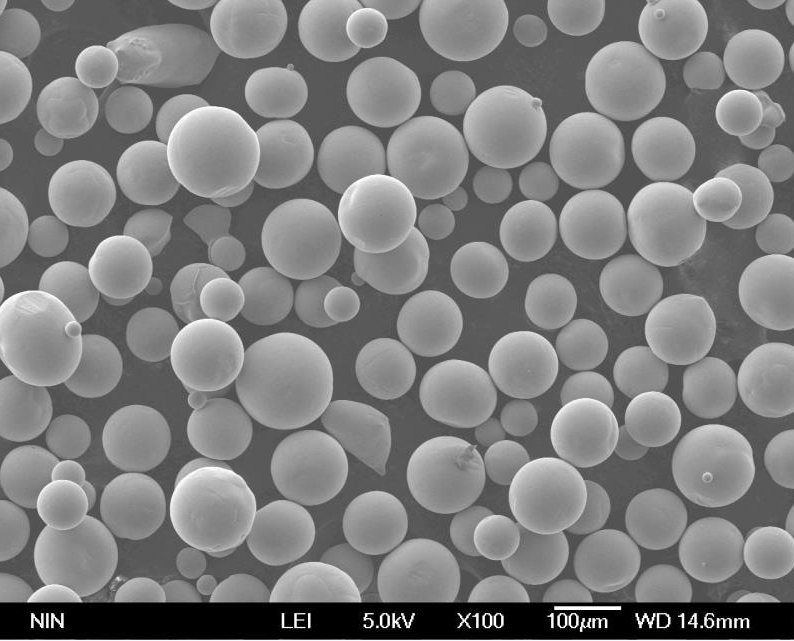
유형 및 특성 액체 금속 분사 (LMJ) 금속 분말
LMJ를 최대한 활용하려면 금속 분말의 선택이 중요합니다. 특정 금속 분말을 살펴보고 고유한 특성을 이해해 보겠습니다.
LMJ에 사용되는 일반적인 금속 분말
| 금속 분말 | 구성 | 속성 | 특성 |
|---|---|---|---|
| 티타늄(Ti) | 순수 티타늄 | 고강도, 내식성 | 경량, 생체 적합성 |
| 스테인리스 스틸 | 철, 크롬, 니켈 | 내구성, 내식성 | 고강도, 내열성 |
| 알루미늄(Al) | 순수 알루미늄 | 경량, 우수한 열전도율 | 높은 가공성, 비자성 |
| 니켈 합금 | 니켈, 크롬, 철 | 고온 내성 | 고강도, 내식성 |
| 구리(Cu) | 순수 구리 | 우수한 전기 전도성 | 연성, 높은 열전도율 |
| 코발트-크롬 | 코발트, 크롬 | 내마모성, 고강도 | 생체 적합성, 높은 경도 |
| 금(Au) | 순금 | 높은 전기 전도성, 연성 | 내식성, 생체 적합성 |
| 은(Ag) | 순은 | 최고의 전기 전도성 | 연성, 항균성 |
| 인코넬 | 니켈-크롬 합금 | 내산화성, 고강도 | 고온 내성 |
| 텅스텐(W) | 순수 텅스텐 | 가장 높은 융점 | 고밀도, 방사선 차폐 특성 |
LMJ 금속 분말의 응용 분야
| 금속 분말 | 애플리케이션 |
|---|---|
| 티타늄(Ti) | 항공우주 부품, 의료 임플란트 |
| 스테인리스 스틸 | 자동차 부품, 공구 |
| 알루미늄(Al) | 경량 구조 부품 |
| 니켈 합금 | 가스 터빈, 화학 처리 |
| 구리(Cu) | 전기 커넥터, 열교환기 |
| 코발트-크롬 | 치과 임플란트, 정형외과 임플란트 |
| 금(Au) | 전자, 의료 기기 |
| 은(Ag) | 항균 코팅, 전자 |
| 인코넬 | 항공우주, 발전 |
| 텅스텐(W) | 항공우주, 국방 |
특성 및 속성
- 티타늄(Ti): 고강도 대 중량비와 우수한 내식성으로 유명하여 항공우주 및 의료 응용 분야에 이상적입니다.
- 스테인리스 스틸: 고강도 및 내식성을 갖춘 다용도 금속으로 자동차 및 산업 응용 분야에 널리 사용됩니다.
- 알루미늄(Al): 경량 및 열전도성이 뛰어난 알루미늄은 무게 절감 및 방열이 필요한 응용 분야에 적합합니다.
- 니켈 합금: 이 합금은 우수한 고온 강도와 내산화성을 제공하여 가혹한 환경에 적합합니다.
- 구리(Cu): 우수한 전기 및 열 전도성을 갖춘 구리는 전기 응용 분야에 필수적입니다.
- 코발트-크롬: 이 합금은 내마모성이 매우 높고 강하여 생체 적합성으로 인해 의료 임플란트에 적합합니다.
- 금(Au): 전도성이 높고 생체 적합성이 있는 금은 전자 및 의료 기기에 사용됩니다.
- 은(Ag): 최고의 전기 전도체이며 항균성을 갖는 은은 특수 전자 및 의료 응용 분야에 사용됩니다.
- 인코넬: 고온에서 고강도 및 내산화성으로 유명하며 항공우주 및 발전 분야에 사용됩니다.
- 텅스텐(W): 모든 금속 중에서 가장 높은 융점을 가진 텅스텐은 고밀도 및 내열성이 필요한 응용 분야에 사용됩니다.
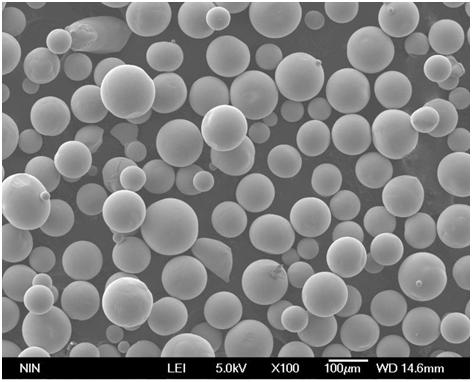
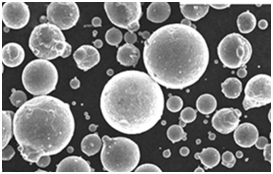
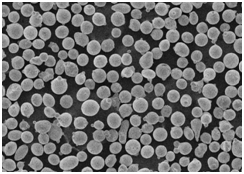
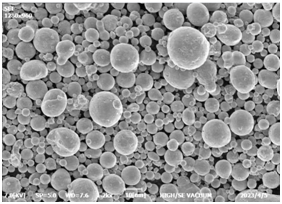
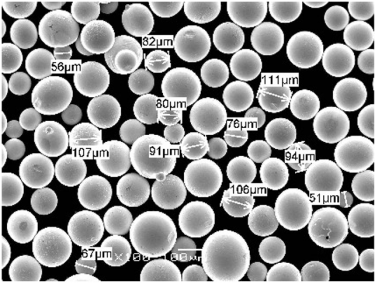
사양, 크기, 등급, 표준
| 금속 분말 | 사양 | 크기 | 성적 | 표준 |
|---|---|---|---|---|
| 티타늄(Ti) | ASTM B348, AMS 4928 | -325 메시 | 등급 1-5 | ASTM, ISO, AMS |
| 스테인리스 스틸 | ASTM A276, AISI 316L | -325 메시 | 316L, 304, 17-4PH | ASTM, ISO, AISI |
| 알루미늄(Al) | ASTM B209, AMS 4037 | -325 메시 | 6061, 7075 | ASTM, ISO, AMS |
| 니켈 합금 | ASTM B637, AMS 5662 | -325 메시 | 인코넬 718, 625 | ASTM, ISO, AMS |
| 구리(Cu) | ASTM B216, ASTM B152 | -325 메시 | C11000, C10100 | ASTM, ISO, UNS |
| 코발트-크롬 | ASTM F1537, ISO 5832-12 | -325 메시 | CoCrMo | ASTM, ISO |
| 금(Au) | ASTM B562 | -325 메시 | 99.99% 순수 | ASTM |
| 은(Ag) | ASTM B700 | -325 메시 | 99.99% 순수 | ASTM |
| 인코넬 | ASTM B637, AMS 5662 | -325 메시 | 718, 625 | ASTM, ISO, AMS |
| 텅스텐(W) | ASTM B777 | -325 메시 | 99.95% 순수 | ASTM, ISO |
애플리케이션 액체 금속 분사 (LMJ)
LMJ는 고정밀도로 복잡한 형상을 생성할 수 있어 다양한 산업 분야에서 광범위하게 적용됩니다.
LMJ 응용 분야 및 용도
| 산업 | 애플리케이션 |
|---|---|
| 항공우주 | 엔진 부품, 구조 부품 |
| 의료 | 임플란트, 보철물, 수술 도구 |
| 자동차 | 엔진 부품, 맞춤형 부품 |
| 전자 제품 | 방열판, 회로 부품 |
| 툴링 | 금형, 다이, 절삭 공구 |
| 보석 | 맞춤형 디자인, 프로토타입 |
| 방어 | 무기 부품, 보호 장비 |
| 에너지 | 터빈 블레이드, 열교환기 |
LMJ의 장점
LMJ가 제조 산업에서 파장을 일으키는 이유는 무엇일까요? 다음은 몇 가지 주요 장점입니다.
- 높은 정밀도: LMJ는 기존 제조 방법으로는 달성하기 어려운 복잡하고 정밀한 형상을 생산할 수 있습니다.
- 자료 효율성: 필요한 양의 재료만 사용함으로써 LMJ는 폐기물을 최소화하여 비용 효율적이고 친환경적인 옵션으로 만듭니다.
- 복잡한 지오메트리: 층별 구조를 통해 기존 기술로는 불가능한 복잡한 구조를 만들 수 있습니다.
- 다용도성: LMJ는 다양한 금속과 함께 사용할 수 있어 다양한 산업 분야의 여러 응용 분야에 적합합니다.
LMJ의 제한 사항
많은 장점에도 불구하고 LMJ에는 몇 가지 제한 사항이 있습니다.
- 장비 비용: LMJ 장비에 대한 초기 투자는 높을 수 있으며, 이는 중소기업에게 장벽이 될 수 있습니다.
- 재료 제약: 모든 금속이 LMJ에 적합한 것은 아니며, 일부 금속은 특정 처리 조건이 필요할 수 있습니다.
- 기술 전문 지식: LMJ 장비를 작동하고 유지 관리하려면 전문적인 지식과 기술이 필요합니다.
표: LMJ의 장단점
| 측면 | 장점 | 단점 |
|---|---|---|
| 정밀도 | 높음 | – |
| 재료 효율성 | 낭비 감소 | – |
| 복잡성 | 복잡한 형상을 만들 수 있습니다. | – |
| 비용 | – | 높은 초기 투자 |
| 소재의 다양성 | 다양한 금속으로 작업 | 일부 금속은 적합하지 않음 |
| 기술 | – | 전문 지식이 필요함 |
LMJ 금속 분말 공급업체 및 가격
LMJ 운영에 적합한 공급업체를 찾는 것이 중요합니다. 다음은 몇 가지 주요 공급업체와 가격 세부 정보 목록입니다.
표: LMJ 금속 분말 공급업체 및 가격
| 공급업체 | 금속 분말 | 가격(kg당) | 연락처 |
|---|---|---|---|
| 호가나스 AB | 스테인리스 스틸 | $80 | www.hoganas.com |
| 카펜터 기술 | 티타늄, 니켈 합금 | $150(Ti), $200(Ni) | www.cartech.com |
| LPW 기술 | 알루미늄, 인코넬 | $100(Al), $250(In) | www.lpwtechnology.com |
| GKN 첨가제 | 구리, 코발트-크롬 | $90(Cu), $3 | www.gkn.com/en/our-divisions/gkn-additive |
| Arcam AB | 티타늄, 스테인리스 스틸 | $160 (Ti), $85 (SS) | www.arcam.com |
| Tekna | 텅스텐, 알루미늄 | $400 (W), $110 (Al) | www.tekna.com |
| HC 스탁 | 금, 은 | $50,000 (Au), $1,200 (Ag) | www.hcstarck.com |
LMJ용 금속 분말 비교
적절한 금속 분말을 선택하는 것은 응용 분야의 특정 요구 사항에 따라 달라집니다. 다음은 LMJ에 사용되는 다양한 금속 분말을 비교하여 보여줍니다.
표: 금속 분말 비교
| 속성 | 티타늄(Ti) | 스테인리스 스틸 | 알루미늄(Al) | 니켈 합금 | 구리(Cu) | 코발트-크롬 | 금(Au) | 은(Ag) | 인코넬 | 텅스텐(W) |
|---|---|---|---|---|---|---|---|---|---|---|
| 힘 | 높음 | 높음 | Medium | 매우 높음 | Medium | 매우 높음 | Medium | 낮음 | 매우 높음 | 매우 높음 |
| 밀도 | 낮음 | Medium | 낮음 | 높음 | Medium | 높음 | 높음 | Medium | 높음 | 매우 높음 |
| 전도성 | Medium | 낮음 | 높음 | 낮음 | 매우 높음 | 낮음 | 매우 높음 | 매우 높음 | 낮음 | 낮음 |
| 내식성 | 높음 | 높음 | Medium | 높음 | Medium | 높음 | 매우 높음 | 높음 | 높음 | 높음 |
| 비용 | 높음 | 낮음 | 낮음 | 높음 | Medium | 높음 | 매우 높음 | 높음 | 높음 | Medium |

자주 묻는 질문
| 질문 | 답변 |
|---|---|
| 액체 금속 제팅(LMJ)이란 무엇인가요? | LMJ는 용융 금속 방울을 증착하여 3D 구조를 층별로 구축하는 적층 제조 공정입니다. |
| LMJ에 어떤 금속을 사용할 수 있나요? | 티타늄, 스테인리스강, 알루미늄, 니켈 합금, 구리, 코발트-크롬, 금, 은, 인코넬 및 텅스텐과 같은 금속을 사용할 수 있습니다. |
| LMJ의 장점은 무엇인가요? | 높은 정밀도, 재료 효율성, 복잡한 형상 생성 능력, 다양한 금속 사용의 유연성. |
| LMJ의 단점은 무엇인가요? | 높은 장비 비용, 재료 제약, 전문적인 기술 전문 지식 필요. |
| LMJ는 다른 3D 프린팅 기술과 어떻게 비교되나요? | LMJ는 더 높은 정밀도와 재료 효율성을 제공하지만 다른 방법에 비해 초기 투자가 더 많이 필요하고 더 많은 기술적 지식이 필요합니다. |
| LMJ는 일반적으로 어디에 사용되나요? | LMJ는 항공 우주, 의료, 자동차, 전자, 공구, 보석, 국방 및 에너지와 같은 산업에서 사용됩니다. |
| LMJ용 금속 분말을 선택할 때 어떤 요소를 고려해야 하나요? | 필요한 강도, 밀도, 전도성, 내식성 및 금속 분말의 비용과 같은 요소를 포함합니다. |
| LMJ 금속 분말의 주요 공급업체는 누구인가요? | 주요 공급업체로는 Höganäs AB, Carpenter Technology, LPW Technology, GKN Additive, Arcam AB, Tekna 및 HC Starck이 있습니다. |
| LMJ 금속 분말의 비용은 얼마인가요? | 비용은 금속에 따라 크게 다르며 스테인리스강의 경우 kg당 $80에서 금의 경우 kg당 $50,000까지 가격대가 다양합니다. |
| LMJ를 대량 생산에 사용할 수 있나요? | LMJ는 고정밀 부품 생산에 적합하지만 높은 장비 비용으로 인해 일반적으로 소량 생산 및 프로토타입 제작에 더 적합합니다. |
